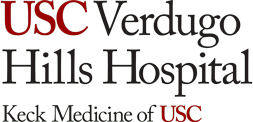Did you know heart disease affects women differently than men? Find out your risk factors and how to recognize the symptoms.
According to the Centers for Disease Control & Prevention, heart disease is the leading cause of death among American women, but they still tend to be underdiagnosed.
“There is still a lack of awareness about women’s unique risk factors and symptoms, and more women than men die each year from heart disease,” says Dr. Helga Van Herle, a cardiologist who practices at USC Verdugo Hills Hospital.
Historically, not enough women have been included in heart disease research, experts note. Increasing women’s representation in research is important because women may respond differently to medications and treatments and need different approaches to care.
Fortunately, today’s experts are learning a great deal about heart disease in women — and sharing how women can recognize their additional risk factors and unique symptoms.
Risk factors
Men and women share many risk factors, including coronary artery disease, diabetes, high blood pressure, smoking, excessive drinking, chronic stress and being overweight.
“However, there are unique risk factors for women, such as gestational diabetes, pre-eclampsia — which is high blood pressure during pregnancy — certain birth control pills and menopause,” says Dr. Van Herle.
The resulting hormonal fluctuations may affect cholesterol levels, blood pressure and blood vessel structure. Therefore, it’s essential for women to discuss their hormonal health with their doctors.
Symptoms
Some women with heart disease don’t have any symptoms, but others could experience:
- Angina — a dull ache in the chest — pain
- Pain in the upper abdomen or back
- Severe, persistent fatigue
Signs of heart attack in women
Heart attack symptoms in women can be different compared to men. For instance, experts say, while chest pain is common for both, women are more likely to experience symptoms such as shortness of breath, nausea, fatigue or discomfort in the neck, jaw or back.
Dr. Van Herle says that men and women can both experience chest pain, but women are more likely to also experience:
- Nausea or vomiting
- Extreme fatigue
- Severe pain in their back or jaw
- Cold sweats
Dr. Van Herle adds that women dealing with mental stress are more likely to have symptoms when they’re asleep.
Signs of stroke in women
It’s important for everyone to learn how to spot a stroke F.A.S.T. As it comes to heart health, stroke is the fifth most common cause of death in the United States and a leading cause of severe, long-term disability.
Both men and women can experience numbness in the face, arm or leg, trouble speaking, vision problems or a sudden and severe headache.
Symptoms unique to women include:
- Weakness and fatigue
- Disorientation, confusion or memory problems
- Nausea or vomiting
What to do if you may be having a heart attack or stroke?
If you experience signs of a heart attack or stroke, call 911. Fast action is crucial, so make the call even if you’re not sure.
Answer the dispatcher’s questions as clearly as possible and follow their instructions — they could save your life.
Stay calm to keep your heart rate as slow as possible. If you’re having trouble, take long, slow, deep breaths.
If you’re experiencing stroke symptoms, doctors recommend that you also lie down on your side with your head elevated.
How to manage risk factors for your heart health?
The best way to prevent a heart attack or stroke is to reduce your risk for heart disease.
The first step is finding out what your risk factors are and being ready to take action. Even if something seems beyond your control — such as family history of heart disease — there are still things you can do:
- Track your blood pressure and cholesterol levels
- Get tested for diabetes at your yearly physical
- Quit smoking
- Make healthy food choices
- Get plenty of exercise, even if it’s three 10-minute walks per day
- Limit your alcohol intake
- Explore healthy ways to manage your stress
To learn more about your risk factors and what you can do, make an appointment with your doctor today.
If you ever experience the symptoms of a heart attack or stroke, call 911 immediately.
Author: Kate Faye

